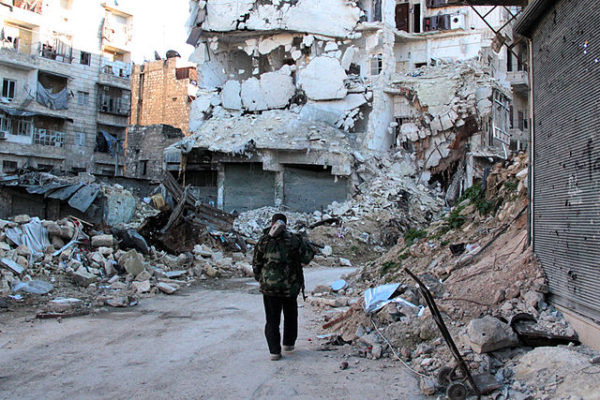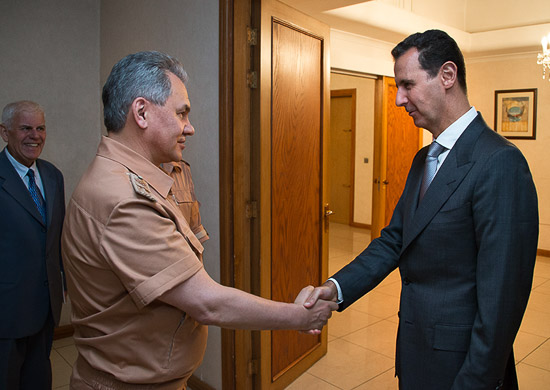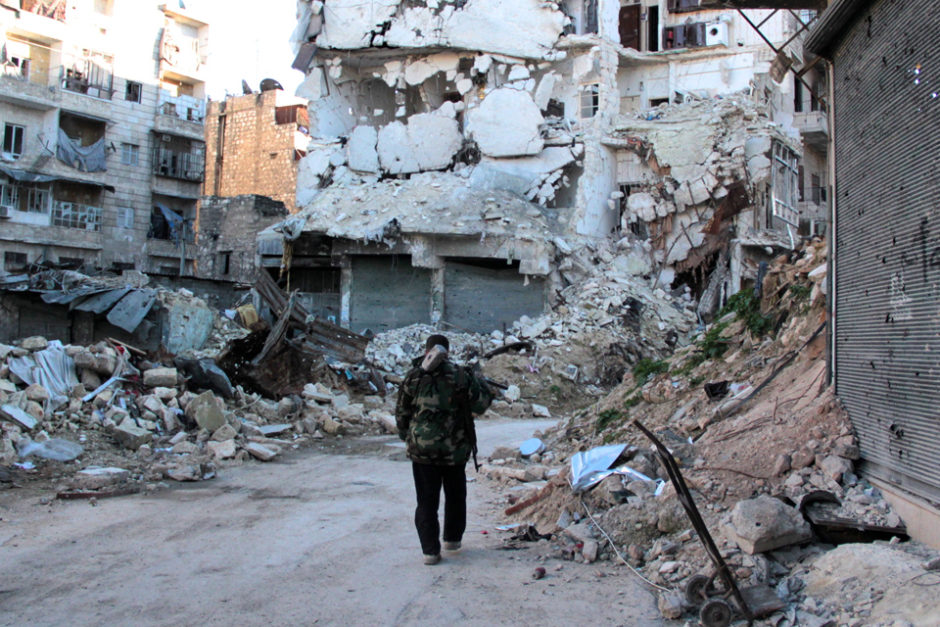Since the collapse of the short-lived ceasefire in Syria two weeks ago, Syria and its ally, Russia, have been mercilessly and indiscriminately pounding the besieged eastern sector of Aleppo, the last major Syrian city still under the partial control of anti-government rebels.

The defenceless 275,000 civilians living there have been subjected to constant aerial attacks, with barrel bombs, cluster bombs, bunker-buster bombs and incendiary munitions crashing down on their homes and underground shelters.
These brutal bombardments have killed more than 400 civilians and prevented humanitarian aid from entering Aleppo.
The United Nations’ envoy to Syria, Staffan de Mistura, has implied that war crimes are being committed in Aleppo, once the commercial hub of Syria.
Syria and Russia are indeed guilty of war crimes, as U.S. Secretary of State John Kerry suggested on October 7 in a justifiably irate speech. Two days ago, Hillary Clinton — the Democratic Party’s presidential candidate — endorsed Kerry’s position. (Tellingly enough, Donald Trump, the Republican standard-bearer, refrained from addressing the issue).
“Russia and the (Syrian) regime owe the world more than an explanation about why they keep hitting hospitals and medical facilities, and children and women,” Kerry said. “These are acts that beg for an appropriate investigation of war crimes, and those who commit these should be held accountable for these actions.”
As Kerry correctly pointed out, Syria and Russia have adopted a scorched earth “targeted strategy to terrorize civilians.”
Two days after Kerry’s speech, Russia, supported by Venezuela, blocked a French resolution at the UN Security Council calling for an immediate end to Russian and Syrian air strikes and a cessation of violence in Aleppo. The draft resolution was backed by 11 countries. China and Angola abstained.
It was the fifth time since the eruption of the Syrian civil war that Russia had vetoed a UN resolution on Syria.
Contrary to Washington’s calculations, Syria and Russia, aided and abetted by Iran, Hezbollah and Shiite militias from Iraq and Afghanistan, are trying to achieve victory by military means.

Russian President Vladimir Putin is doing his utmost to prop up Syrian President Bashar al-Assad’s police state. A year ago, he threw the might of the Russian air force into the battle. Since then, Putin has deployed the highly sophisticated and deadly S-400 and S-300 air defence systems in Syria.
Moscow is backing its oldest Arab ally in the Arab world, Syria, to the hilt, while the United States more or less dithers as Aleppo burns. As widely reported, the Obama administration has no clear plan on how to end the civil war — which has claimed some 400,000 lives — or how to stop the fall of Aleppo, Syria’s biggest city, to Syrian government forces.
Putin is so resolute that the Russian Ministry of Defence recently warned the United States that its planes could be shot down by Russia’s anti-aircraft batteries should they attempt to strike Syrian government positions.

In the absence of U.S. air strikes against Assad’s regime, the Obama administration is attempting to exert pressure on Syria and Russia by other means — namely through proposed UN resolutions and, now, Kerry’s proposal for a war crimes investigation.
Moscow has dismissed Kerry’s call as “propaganda” and reiterated its claim that the United States is responsible for the breakdown of the latest truce.
Despite Moscow’s bluster, Washington should pursue its case against Syria and Russia, though its chances of success are extremely slim, if non-existent.
Two years ago, Russia and China used their veto power to block a UN Security Council resolution that would have authorized the International Criminal Court to investigate the perpetrators of war crimes in Syria.
Sadly, nothing has changed since then.
Neither Syria nor its protector, Russia, are members of the treaty-based International Criminal Court. Hence, they are virtually immune to war crimes prosecution.
Nevertheless, the United States should press on with efforts to shine a spotlight on the commission of war crimes by Syria and Russia.
Assad’s chief priority is and has always been survival. It’s clear he will do whatever it takes to preserve his Baathist regime, even if tens of thousands of additional Syrians lose their lives.
Russia, his enabler, will continue to bomb the rebels so that its military bases and sphere of influence in Syria remain intact.
For these reasons, Syria and Russia have placed themselves beyond the pale and richly deserve to be condemned as perpetrators of war crimes.
